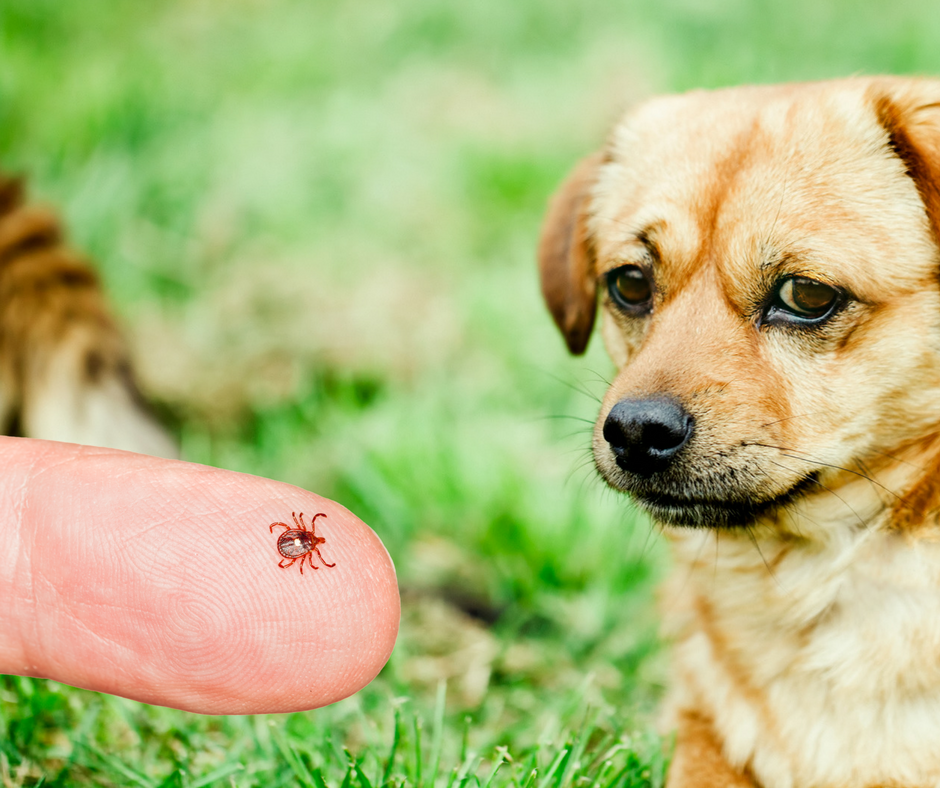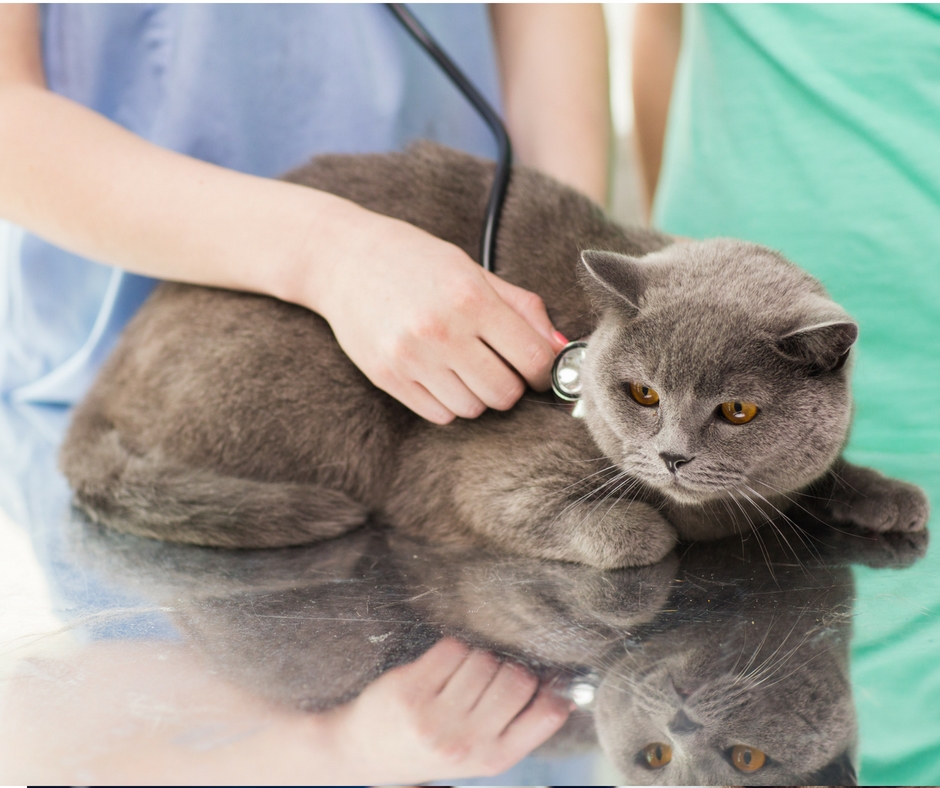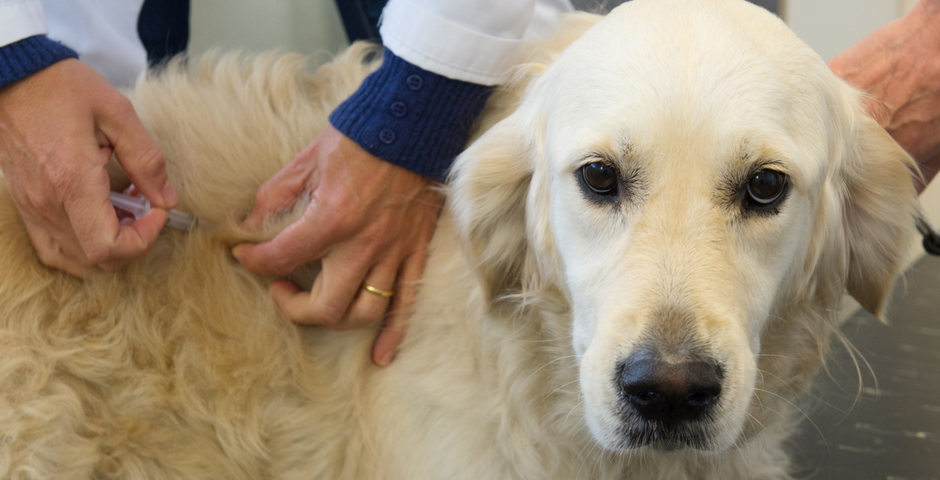
The Growing Threat of Ticks
April 17, 2018
Less Stress, More Purr – How to Help Your Cat Have a Stress Free Veterinary Visit
May 24, 2018As summer approaches, we have a lot to look forward to—backyard barbecues, swimming, sun-bathing, outdoor sports, walks along our favorite hiking trails and more. What also makes the warmer months so great, is that our furry companions can tag along for the fun. Whether you own a small toy poodle, robust Labrador retriever, scruffy Schnauzer, you name it, all dogs love spending time outdoors.
But before the fun begins, it is important to provide your pets with the protection they need to keep them healthy, as there are a few considerations involved if your pet will be spending time outside.
In addition to protecting your pet from the risks of fleas and ticks, one BIG topic many veterinarians are now discussing with dog owners is Leptospirosis.
What is Leptospirosis?
Leptospirosis is a zoonotic disease (can be spread from animals to humans), that is spread via bacteria in which wildlife and domestic animals are the reservoir hosts. The disease most commonly affects dogs, and symptoms are usually not recognized in cats if they are a host. There is no current vaccine for cats.
Although our animals are at a much higher risk for contraction than people, Leptospirosis is still a notable disease identified in humans today. According to the Center for Disease Control (CDC) there are an estimated 100-150 cases seen in the United States annually.
Where can my dog contract Leptospirosis?
Leptospirosis used to be considered something that only farm and hunting dogs contract. That thinking has changed significantly as the disease has spread to become one of the most common diseases for dogs. In fact, it is the #1 canine disease in Manhattan!
The bacteria commonly occur within wildlife animals such as racoons, skunks, and possums. Bacteria must be absorbed through the mucous membranes (mouth, eyes or an open wound)
- Your pet can become infected from drinking water in which animal hosts have excreted the bacteria in their urine such as rivers, lakes and ponds.
- He or she can also pick up the disease directly from the soil we walk on if the bacteria were expelled there.
- In other cases, the disease can be spread via direct contact with an infected animal or diseased carcass.
What are the symptoms of Leptospirosis?
According to the American Veterinary Medical Association (AVMA):
- If symptoms are visible, you may notice weakness, reluctance to move, inappetence, vomiting and diarrhea, jaundice (yellowing of the gums and eyes) frequent water intake and frequent urination.
- The disease, when severe and untreated, may cause kidney failure in your pet, as well as bleeding disorders.
- As with any disease, diagnosis is key to treating it accordingly. These symptoms can be seen with several other diseases so additional testing such as radiographs, bloodwork, urinalysis, etc., may be needed for official diagnosis.
How is Leptospirosis treated?
- Leptospirosis is treated with antibiotics and supportive care. If diagnosed, your pet will likely spend several days hospitalized, undergoing an aggressive treatment. The risk of permanent residual kidney or liver damage does still exist.
- If your pet is being treated for Leptospirosis, our hospital, along with the AVMA, recommends the following precautionary steps:
- Avoid contact with your dog’s urine. If possible, allow your pet to urinate in an isolated area outside where no other animals will have contact and where there is no standing water.
- If your dog urinates in your home, quickly clean the area with a household disinfectant and wear gloves to avoid skin contact with the urine;
- Administer antibiotics and all medications as prescribed by the veterinarian
- Wash your hands after handling your pet.
How can I prevent Leptospirosis in my dog?
As with any disease or illness, PREVENTION IS KEY. The best way to protect your dog from contracting Leptospirosis is by vaccinating against the disease.
- The Leptospirosis vaccine has gotten better and safer over time and has been shown to be safe and effective when given every 12 months. It is now advised for every dog.
- As with any vaccine there is always a risk of a vaccine reaction. If your pet is receiving the Leptospirosis vaccine for the first time, please watch for a reaction. If you notice any scratching of the face, facial swelling, hives, vomiting, diarrhea or trouble breathing, contact your veterinarian immediately.
- Reduction to possible sources of exposure is important if your pet is not currently up to date on their yearly Leptospirosis vaccine; avoid areas where the bacteria is commonly seen. This means any lakes, rivers or outdoor areas where wildlife exists.
As devoted pet owners, we strive to have as much time with our companions as we can because they aren’t just animals, they are a part of the family. Keeping them in tip-top health starts with prevention. At Muller Veterinary Hospital, one of our biggest goals is preventing illness. Vaccinating your dog contributes to what we call “community immunity.” By preventing your pet from contracting the disease, you contribute to an overall defense that will keep the disease from getting a foothold in the Bay Area.
For more information about Leptospirosis or vaccinating your dog, give us a call at (925) 934-8042.

